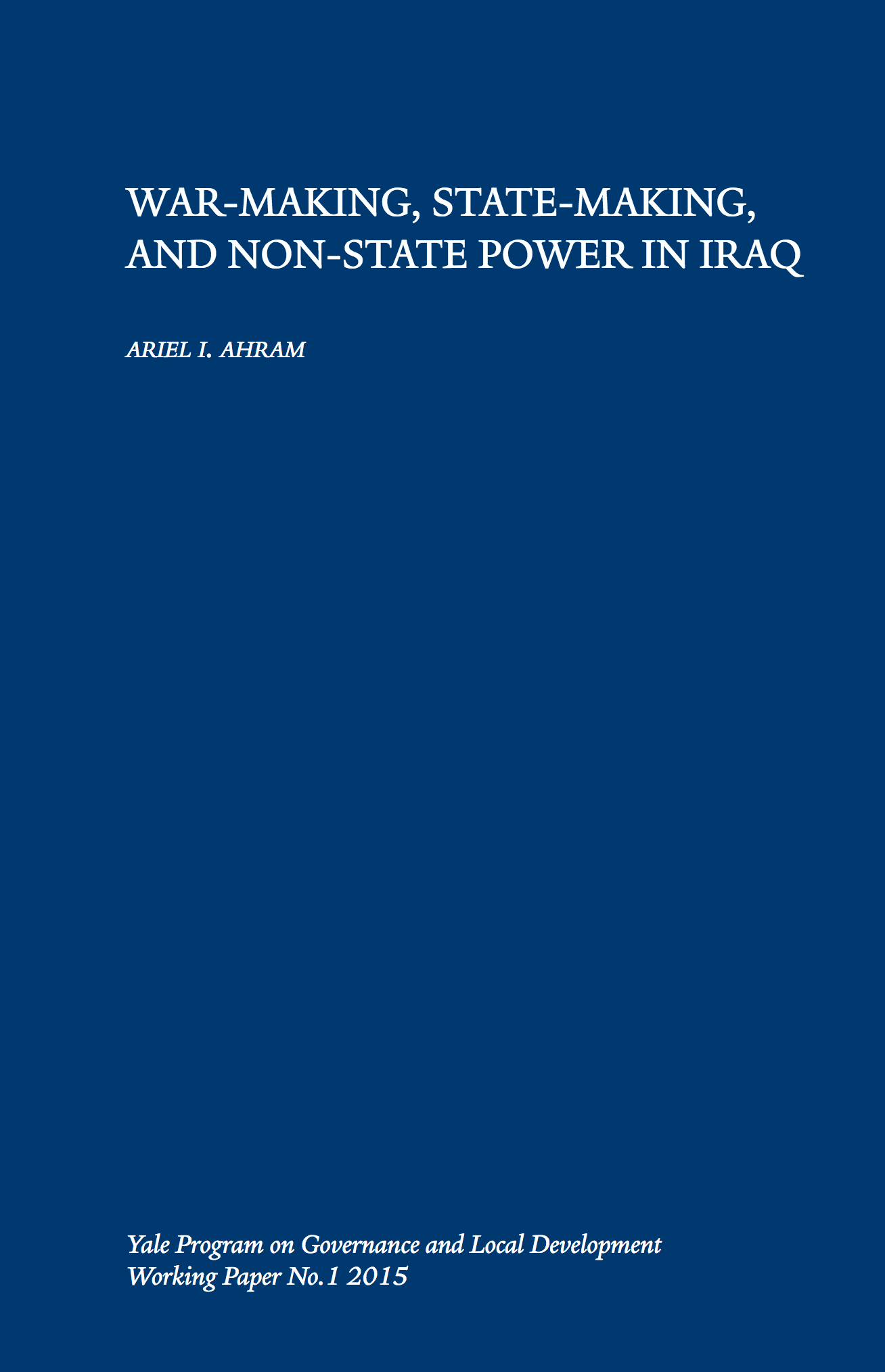No.3 War-Making, State-Making, and Non-State Power in Iraq
Ariel Ahram
Abstract
This paper examines the role of coercion in the history of Iraqi state formation. It contends that the twin processes of war- making, competition in a highly militarized regional system, and state-making, suppression of significant internal challengers, shaped the way the Iraqi state dealt with society and led to a state that constantly sought to gain a monopoly over the use of violence and eliminate armed non-state actors. This trajectory is rare in much of the developing world, where many states have accommodated or even encouraged armed non-state actors to provide local security. The interaction between insecure regimes, powerful societal actors, and imperialist interventions, spurred Iraq’s leaders to augment and centralize their coercive power. The added element of regional and international rivalries meant that the Iraqi state could not permit non-state actors to have access to the means of violence; when they did, the results were disastrous. This process culminated in the emergence of the hyper-militarized Ba’th society, where nearly one in twenty Iraqis were associated with the state security forces. At the same time, since the fall of the Ba’th in 2003, the Iraqi state has struggled to assert coercive power over society, reverting to an older form of bargaining between state and armed non-state actors.
